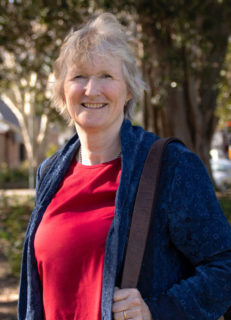When it comes to ADHD Resources in Australia, in addition to the dedicated organizations and groups that I’ve reviewed, there are also dedicated practitioners who provide helpful resources and bring greater awareness to ADHD.
Much like my own efforts to raise awareness of adult ADHD, Dr. Alison (Sally) Poulton has been working tirelessly to bring greater awareness and understanding to those affected by childhood ADHD. She has worked for more than 30 years as a paediatrician and has also raised four children of her own – giving her invaluable “hands on” experience beyond her clinical work.

Dr. Alison Poulton
Senior Lecturer in Paediatrics
Sydney Medical School Nepean
The University of Sydney
A British ex-pat, Dr. Poulton has continued to study throughout her career, with a greater and greater focus on the impact that stimulants have on children, specifically those being treated for ADHD. She is a fellow of the Royal Australasian College of Physicians, and received her MD from Cambridge University for research into the impact of stimulant medication on children’s physiology – including body weight, height and physical maturity.
To help parents, caregivers, teachers and ultimately children with ADHD, Dr. Poulton has collaborated with the University of Sydney to provide a series of ‘Explanation Sheets’. You can download the ADHD Explanation Sheets as PDFs on her website.
Acknowledging and understanding are such an important first step in helping those with ADHD, and Dr. Poulton’s PDFs focus on bringing greater awareness to the condition and associated behaviours.
Why do some children appear to be “troublemakers”? Which behaviours are typical, and how does ADHD manifest across a wide range of behaviours?
These questions and the answers Dr. Poulton provides help families to build a better support system for their children, and help teachers create a more balanced classroom experience. And, it all starts with awareness and understanding!
PDF #4, ‘Behaviour Strategies for ADHD’ and PDF #5, ‘Medications for ADHD’ start to bring solutions into focus. We learn how we can help those with ADHD manage their lives better, and the types of medications which are used for treating ADHD.
Dr. Poulton provides a comprehensive set of resources that is clearly understood, and these documents can be a good starting point when advocating for greater awareness or understanding of ADHD in your own family, school, community and even workplace!
I’m thankful for the work of Dr. Poulton and her contributions to the ADHD community in Australia.
Dr Mahendra Perera is a General Psychiatrist who treats adult patients in Melbourne, Australia. Dr Perera has specific interests in ADHD, Mood Disorders and Addiction. In addition working with his patients, he has also contributed to research across a number of specialties and helped many young doctors make their way in the medical field. Learn more about Dr Perera.
Please note: Dr Perera has no financial arrangement with any of the providers listed on the site. These resources are provided as a courtesy to patients, and are not intended as a recommendation or endorsement.
